Being Good to humans: Fair Trade
1/25/2018
By: Christine CluttonLast week Jon asked me if I wanted to write the next blog on a recent Harvard study about fair trade (FT). I energetically agreed and went about my life kicking ass, taking names, and starting a business. Two days later, coffee in hand and headed to my office in pure early-morning-caffeine-euphoria, I was “greeted” by 40 pages of text, tables and calculations that looked like this. . . . This is what Jon wanted me to write about. I put the paper down and headed back to the kitchen for another cup of coffee. With a husband like mine, I should have known. I haven’t read that much since senior (just kidding, most likely junior year) at UT. So I did what all good business students did . . .I read the abstract, intro, and then skimmed the rest. Jon did all the heavy lifting on this blog post. But also in true business-student style, I offered to write it. What I hope to captured is how this paper actually is an intriguing conversation starter about how to do business well. Or might even say. . . to do business the "wild way," This is an area that hits home for us. Treating humans well is important. It's something we'd like to just do well and not make a big deal about. Yet this subject seems to be challenging and more complicated than you'd expect. As you'll find out, FT seems to be an effective mechanism for redistributing wealth back to the farmer. I learned a lot about Life in Kenya, where I spent two summers in college, and I've seen the implications when farmers aren't paid their due. A lot of our heart is in this topic, and we wrestle with how we can make this a part of our business from beginning to end. The paper in question is titled “The Effect of Fair Trade Certification: Evidence From Coffee Producers in Costa Rica” by Raluca Dragusanu and Nathan Nunn. Published 21 December 2017. (Even the name is a mouthful) Dr. Dragusanu is a recent PhD recipient and Dr Nathan Nunn is a economics professor at Harvard with specific interests in economic development and international economics. The two take on Costa Rica to answer an intriguing question, does FT even work? What even is "Fair Trade"?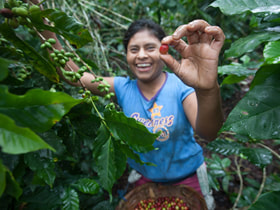 photo cred: Fair Trade America photo cred: Fair Trade America The goal of FT is to improve the living conditions of farmers in developing countries. This was the aim of some savvy Dutch folks in 1988 when they established an NGO to ensure growers were provided with sufficient wages. The idea took off across Europe until it eventually transformed into the Fair Trade Labelling Organization International (FLO). FT works through two principles: 1) a minimum price and 2) a price premium. The minimum price is like a floor. Even if the market price goes below the minimum price, FT certified farms still pay the price minimum. I included a graph below. . . because Jon tells me that graphs are good (I'm still skeptical). . . Jon here. I posted Christine's skeptical face for you. This is her freaking out about Ben the Bachelor being right behind her. She's not all that skeptical in this photo. . . I just wanted to post it. Below, you can see that the black line stays flat, even as the market fluctuates below it. That is the price minimum. Right now that price is $1.40 per lb, $0.30 more for organic, and unwashed coffee is $0.05 less. Theoretically the price minimum should provide a little room to breath for farmers and increase revenue. That is hypothesis number 1. The price minimum positively impacts coffee sales. The second principle of FT is a price premium. In addition to the sales price, a sum of money (currently $0.20 per lb.) is set aside to be reinvested in the community. This can be used for anything, from the maintenance of roads to setting a minimum wage for laborers. Because of the price premium, we could hypothesize that the effects of FT certification should spill into the community. And now we have reached our second and final hypothesis. FT certification positively impacts income for the community in general. Well then...Does Fair Trade Work?photo cred : fairtrade.com.au The results Dragusanu and Nunn found can make us all sleep a little easier at night, and maybe go out and buy some FT coffee in the morning. Dragusana and Nunn found that in years the minimum price was binding, FT certified producers sold their products at higher prices. Meaning the minimum price works. They also found the quantity and revenues of FT mills (where the coffee is sold from) tend to be overall higher. I.e. the price floor of $1.40 is creating larger revenues, quantities sold, and higher prices. Since there is a price premium for FT coffee that needs to be invested in the community, Nunn and Dragusanu hypothesized they’d be able to see spillover effects in the community. And sure enough, there are sizable positive spillovers into communities, even for people NOT in the coffee industry. Nunn and Dragusanu graded regions in Costa Rica for the number of FT producers and mills. For one-standard-deviation increase in FT, they saw a 3.5% increase in the average income of ALL humans in that area. Hypothesis number 2 solved. Most notably, within the coffee community, FT seemed to redistribute wealth from intermediates to skilled coffee workers. Farmers, who make up 43.5% of the coffee sector, saw a 7.7% increase in average income, on top of the already high 3.5% increase felt by all. Intermediaries and jobs related to transportation, sales, and storage of coffee make up only 6.7% of the coffee sector and can make 50% more than skilled farmers. They saw a 3.9% decrease in average income, i.e. FT decreases inequality. FT #FTW Lastly, because of these spillover effects from FT areas, a higher percentage of students were able to remain in secondary school compared to areas with low FT involvement. We can assume that's because the income levels of the parents allowed for the education to continue and kids didn't need to get jobs to contribute to the family household. Final Thoughts From The Peanut GalleryI had personal interest in this conversation because it was the FT movement that got me interested in coffee. In college I took an “emphasis” in FT and sustainable business. My first job out of college was actually the Marketing Coordinator for a FT certified fashion company. I shortly moved onto the coffee world, finding the perfect fit for my goals. But honestly, I haven’t actually pursued the answer to the FT question myself. I know there’s been debate in the industry and this isn’t the ONLY way to improve wages and communities in coffee farm sectors. Direct trade is suspected to have similar benefits, and also just being a good-human with a good-heart while operating a business is also beneficial. But as Jon is teaching me, it is important to examine what we suspect, with data, to actually determine the facts, not the fancy ideas marketers put in front of us. And when it comes to the benefits of FT certification, it looks like the data is in its favor.
Stay Wild, Folks Christine Clutton Owner/Operator/Barista
Comments
|
THE WILD WAY CONTRIBUTING WRITERS: |
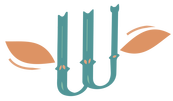
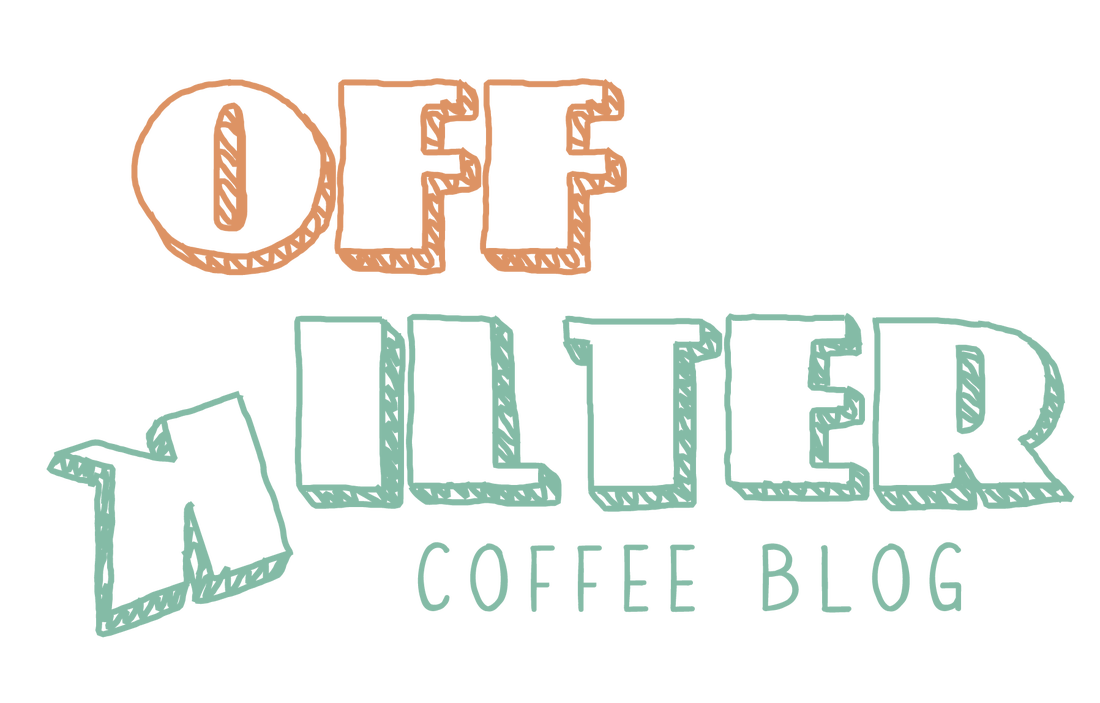

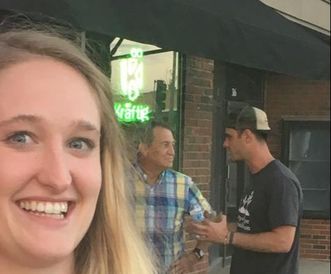
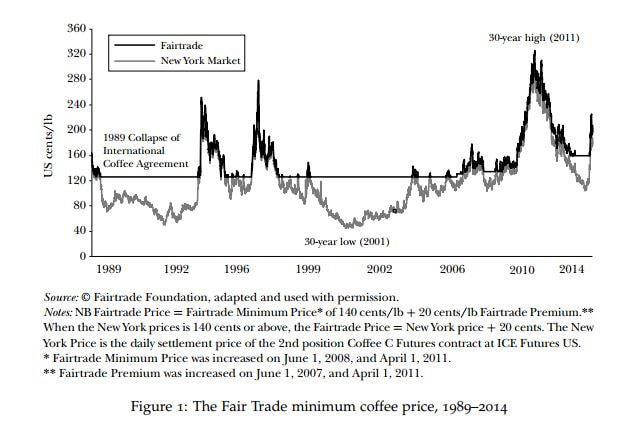
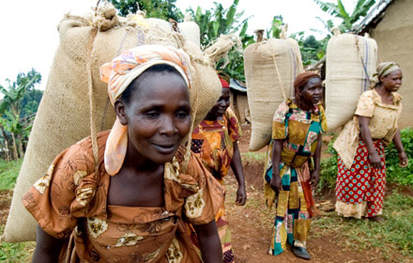
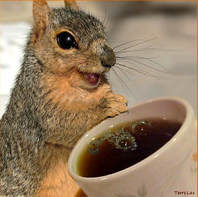
 RSS Feed
RSS Feed
